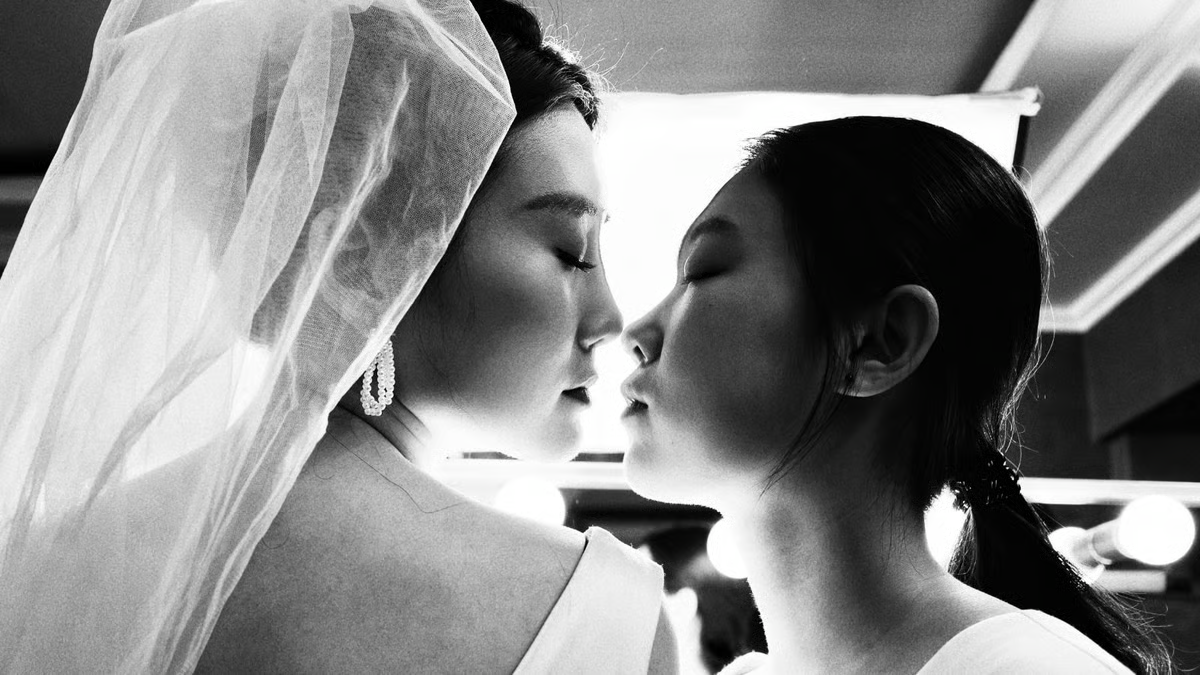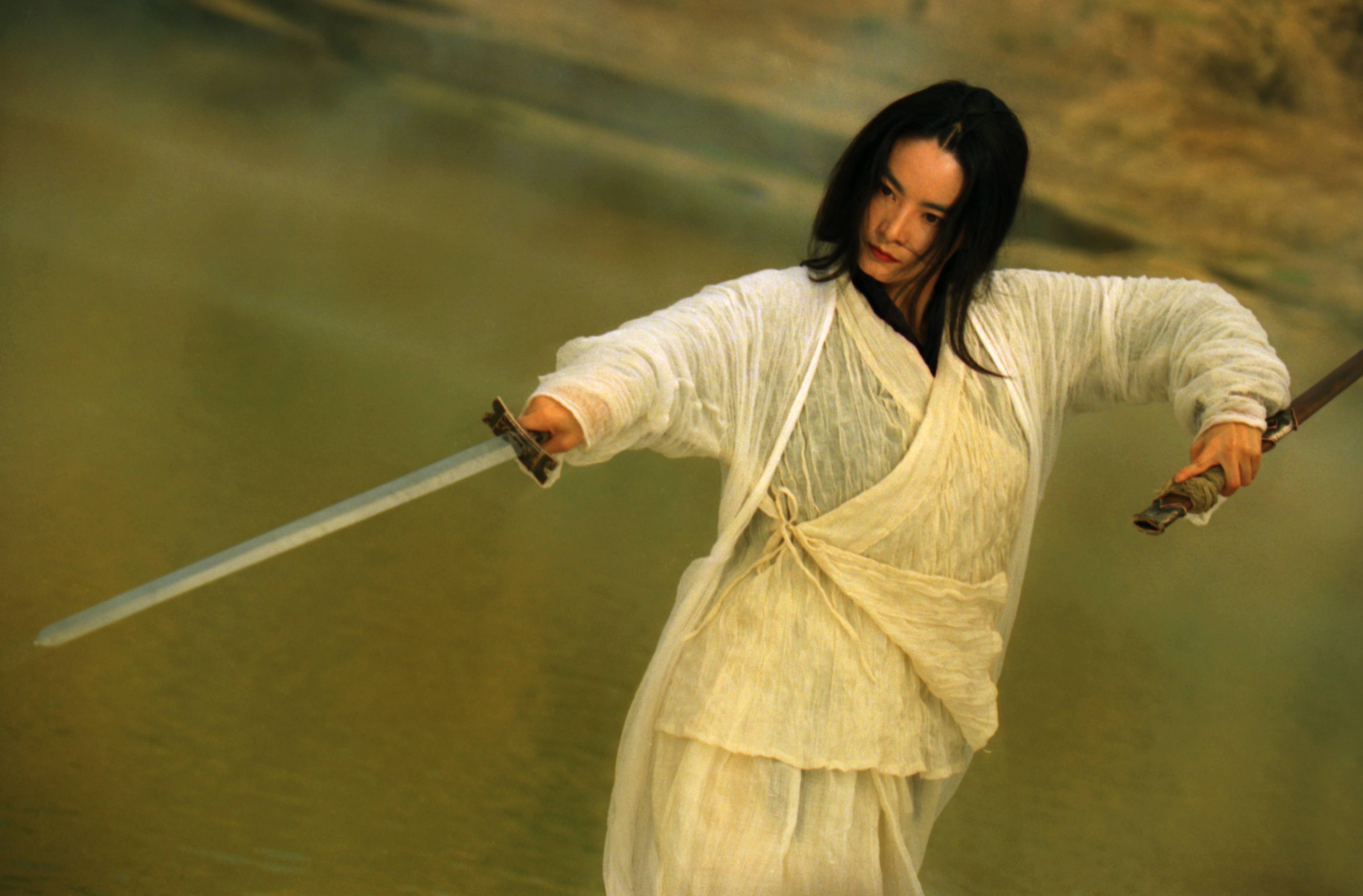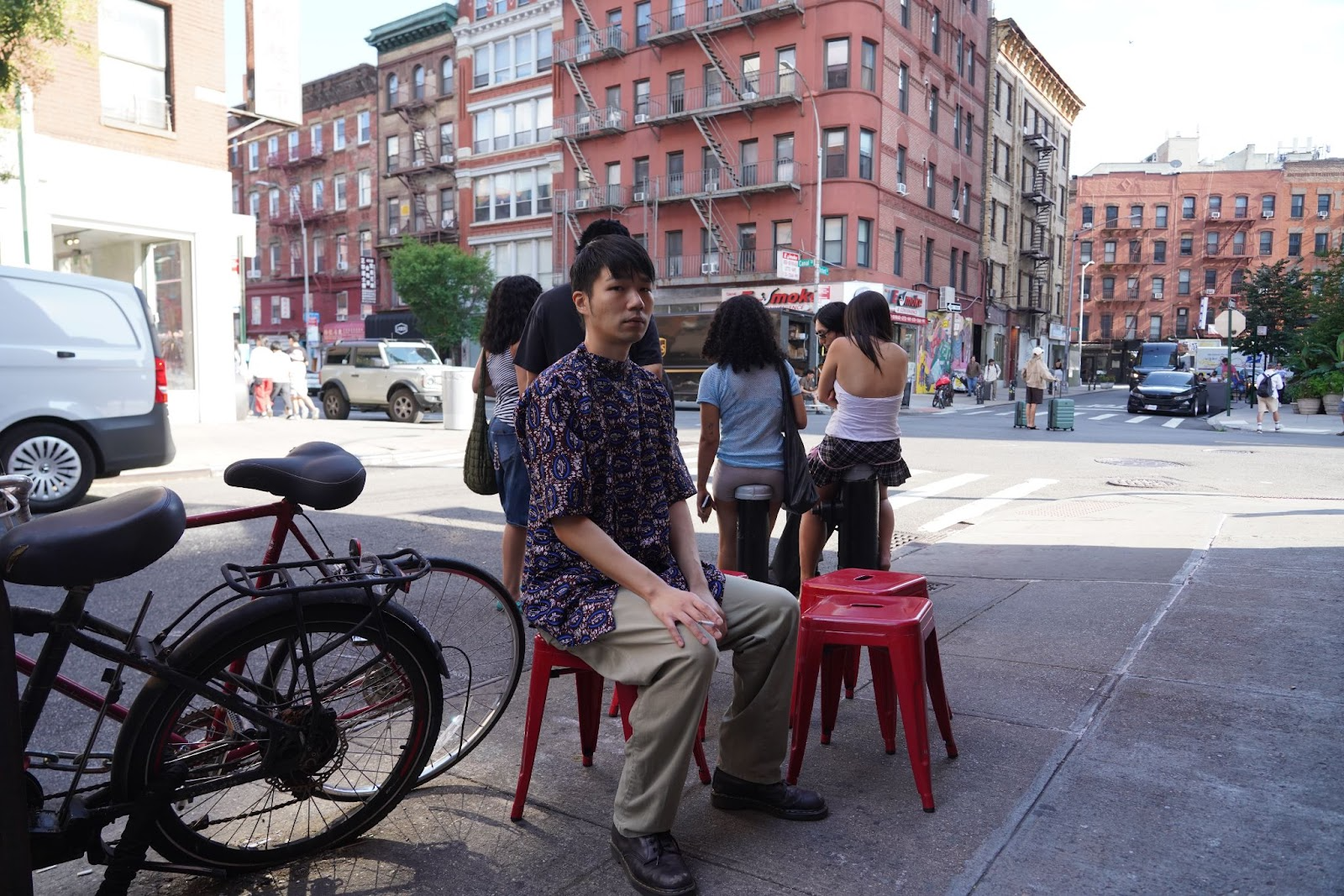Geng Jun is not a romantic person. “I’m not even passing when it comes to romance,” he said.
It’s perhaps his own unsatisfactory grade in romance that drew the filmmaker to a love story. Geng describes his latest film Bel Ami 漂亮朋友 (2025) as a story of pure love, the type of romance movie that leaves the viewer with a renewed sense of hopefulness for love itself.
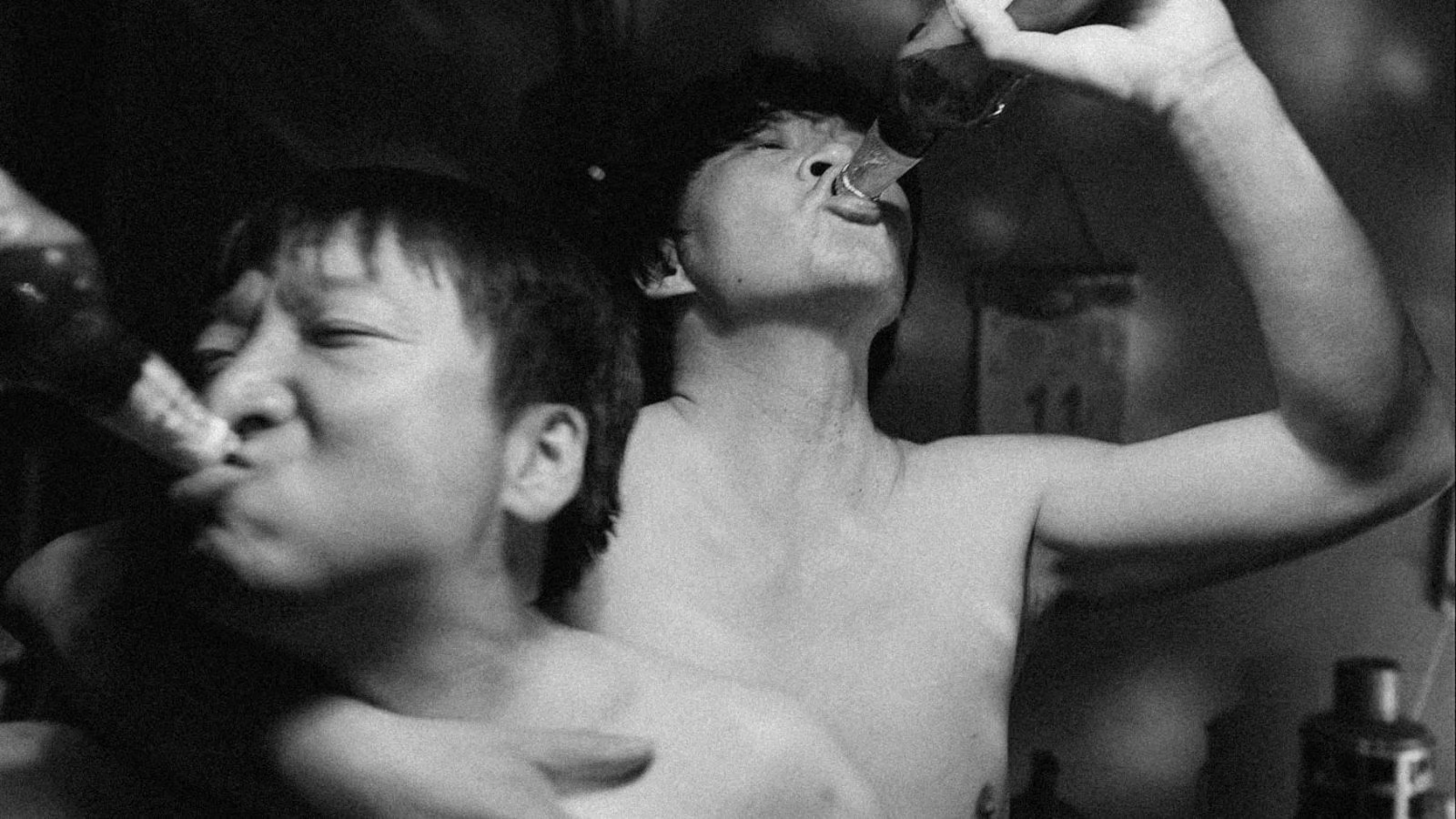
“I made a film of how I want to love. I hope that I can be as romantic as what’s in the movie,” said Geng. “Every romantic part of the movie is who I hope to become. I think people are more interesting that way.”
Following a successful run at the Taiwan Golden Horse Film Festival, where the film clinched awards in five categories, including Best Director and Best Leading Actor, Bel Ami is being hailed by fans as the best Asian-language queer film.
The film’s idea originated during the COVID pandemic. At a time of intense loneliness and isolation, Geng was drawn to stories of closeness and human connection. One such inspirational relationship was with a friend 10 years his senior, who had come out as gay. Geng was fascinated by his pursuit of love. His friend had gotten married, divorced, and then stopped believing in love. When he was well into middle age, this friend began looking for a same-sex partner in Hegang, a provincial town in Northeastern China’s Heilongjiang province.
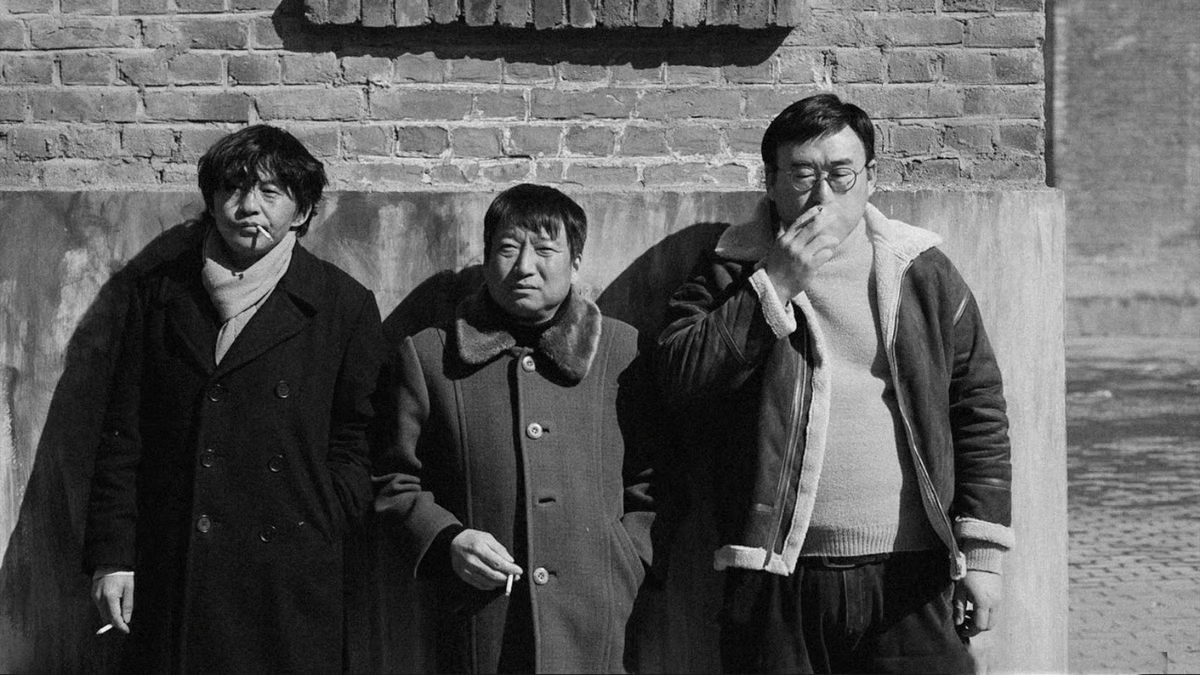
“In our small hometown, people were pointing fingers and laughing at him. His journey for love had many twists and turns similar to the love stories you see in books and movies,” said Geng.
The screenplay’s first draft was based on the story of Geng’s friend, but Geng realized it was a tragic story. After two downturn years following the pandemic, Geng was eager to make a comedy—a movie that would bring joy to viewers. Geng’s mindset shifted when he wrote the second screenplay, which he describes as a “gay, pure love comedy.”
Geng began making short films with his childhood friends during the DV (digital video) era of the early 2000s. In 2016, he gained greater recognition with his feature-length film Free and Easy (2016), which won the Sundance Special Jury Award. Just before the pandemic, Geng completed Manchurian Tiger (2019), his biggest film in budget and scale to date.
Almost all of Geng’s films, from DV shorts to commercial features, are set in his hometown of Hegang, where he often casts his cohort of childhood friends as nonprofessional actors. In Bel Ami, Geng returns home to the Northeastern city. Now well into middle age, Geng’s longtime friends and collaborators Xu Gang and Zhang Zhiyong are cast as gay lovers in the film. The movie’s Chinese title—that directly translates to “Pretty Friends”—references Geng’s actors, whom he believes are pretty for their age and the wrinkles they display on screen.
While the film’s characters and style are undoubtedly “Geng Jun,” Bel Ami expands the filmmaker’s repertoire in a new direction. From the movie’s inception, every little detail is designed to tell a story of love.
“This love story’s leitmotif is romance,” said Geng.
Romance starts from the city and setting that Geng is most familiar with. Located in the coldest region of China, Hegang is characterized by its long, cold winters and a post-industrial landscape. Once a thriving mining hub, it is now a hollowed-out city with remnants of worn infrastructure. Geng’s past films portray scenes of urban decline, including shots of dilapidated fields and buildings. Today, after two decades of making films in and about Hegang, Geng hesitates to characterize the city with mere descriptors.
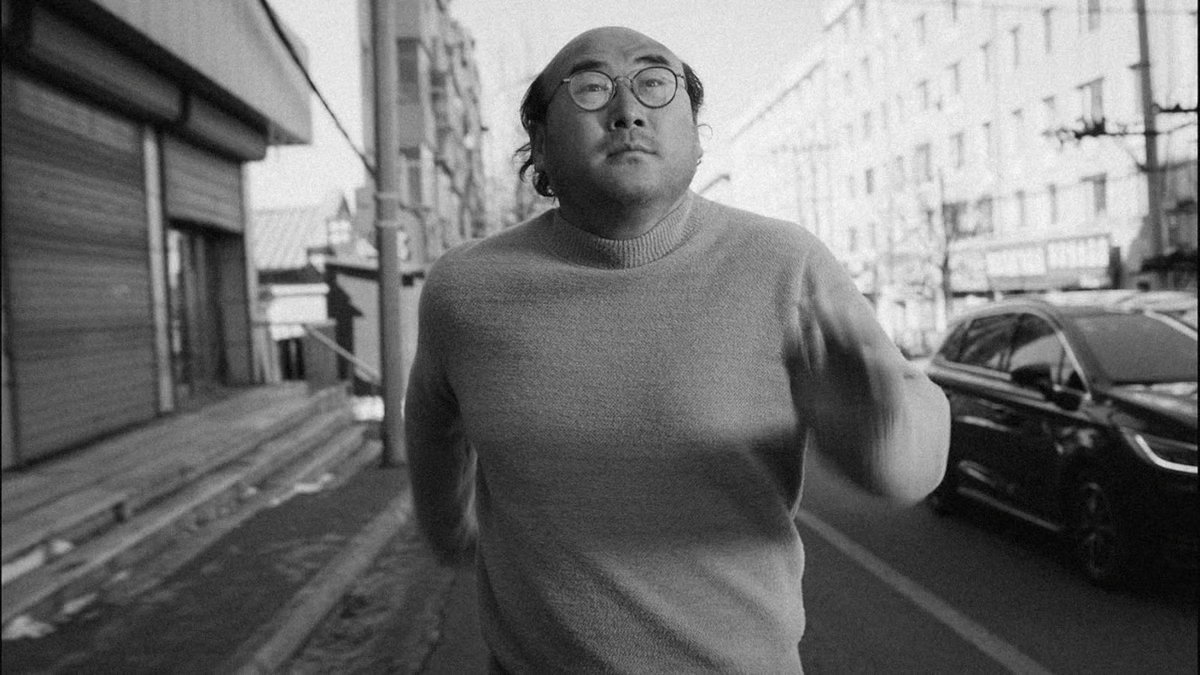
“In moments of love, Hegang is a romantic city,” Geng said. “In the past, my movies were cold and aloof. My latest movie is one of love, so this time I have to reshape this city to make it a scene of love. I don’t need that many people in the movie; a city of love only needs romance.”
In Bel Ami, a character compares the art of Northeastern China to that of Scandinavia, claiming that the two share the aesthetics of snow-covered regions. Through the lens of romance, Geng’s Hegang is reminiscent of Europe—perhaps London or maybe Budapest. The movie reimagines China’s urban periphery, lingering on cherubic statues and bridges to construct scenes of romantic yearning. Familiar and everyday spaces like the bathhouse, railcar restaurant, and hair salon become intimate settings for quiet flirtation.
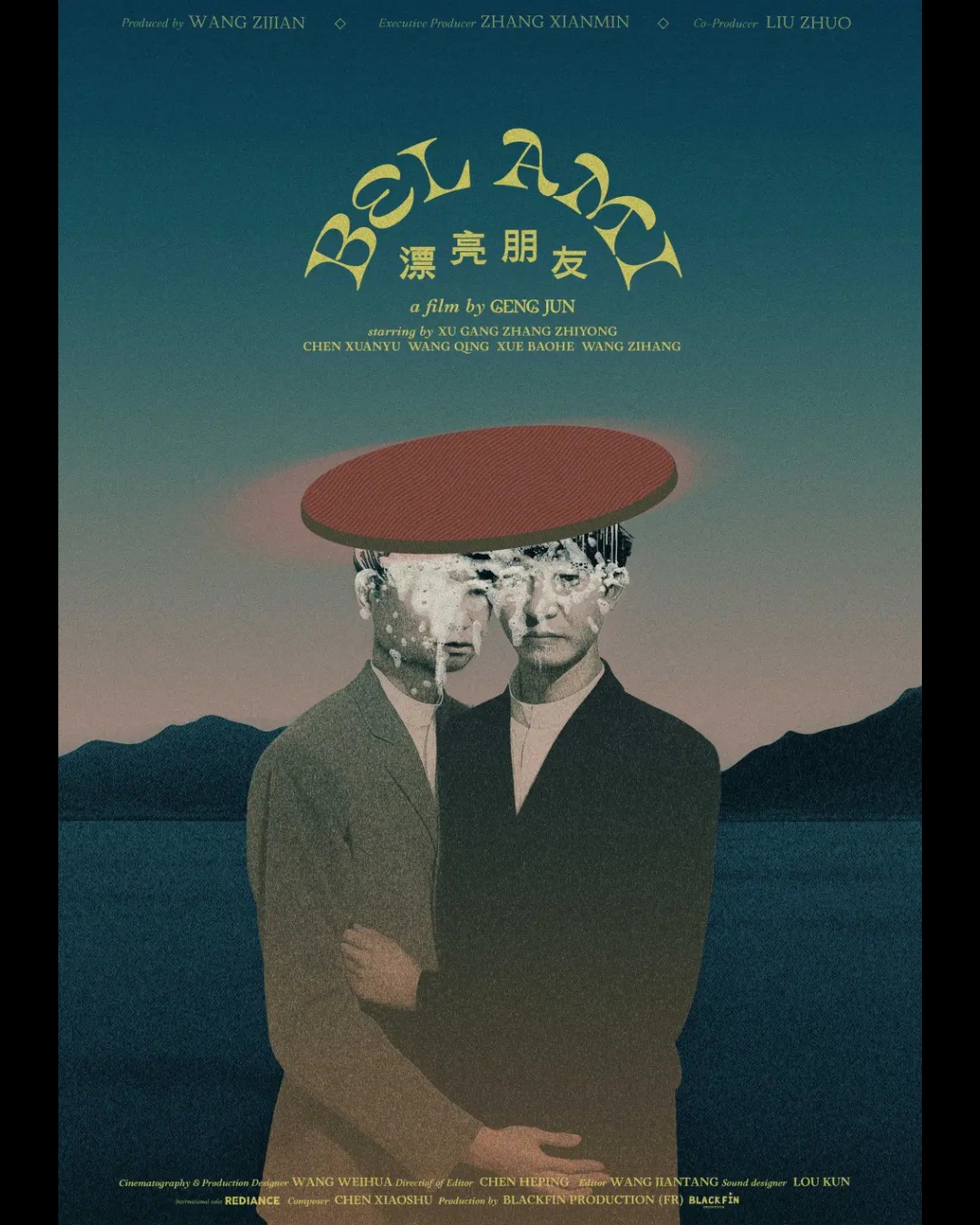
The movie is shot almost entirely in black and white to portray the characters in a statuesque manner. Geng said this was a suggestion from the cinematographer that he eagerly adopted. Stripping away color, the monochromatic shots are chiseled by manipulations of light and dark, allowing each facial expression to stand out.
“We wanted everything else to fade away,” said Geng. “Nothing is important except for the characters’ faces. We wanted to emphasize the concentrated expression and demeanor of people in love.”
Comic absurdity is a throughline for Geng’s films. In Bel Ami, absurdity ventures into the surreal. At times, characters speak in gestures unbeknownst to everyone else. In another moment, there is an extraterrestrial intervention. For Geng, these absurdist scenes are love made manifest.
“Love removes you from the momentum of life, the momentum of the banal. It has the power to break apart the rules of life,” said Geng.
Last year, Bel Ami premiered at Taiwan’s Golden Horse Festival and swept awards in multiple categories. This past April, it premiered in Hong Kong at the Hong Kong International Film Festival. In Taiwan, where Mandarin is spoken widely, audiences left the theater quoting lines from the film. Prior to the Hong Kong premiere, Geng admitted to being nervous that a Cantonese audience might not get the film’s humor.
Ultimately, the film’s Hong Kong run was even better than he could have asked for. Geng recalls audiences laughing every time the characters spoke and even clapping spontaneously throughout the movie. It was clear that audiences resonated with the words and the emotions of his love story.
In July, Geng and Bel Ami were in New York City for the New York Asian Film Festival, making its North American premiere. As part of his New York trip, Geng also screened Free and Easy together with Bel Ami in partnership with the local Chinese-language film collective Nooks and Crannies. This time around, Geng said he’s no longer worried about the language barrier but is still certain that much of the film’s meaning will be lost in translation. Still, the raw emotions of the film transcend words.
When asked what’s next for him, Geng said he’s interested in exploring the most human of emotions.“Emotions are the most interesting, most worthy,” said Geng. “Some emotions can’t be expressed in day-to-day life or by words. They’re seen in literature—they’re in the writing of Kazuo Ishiguro, they’re in Sense and Sensibility, and Anna Karenina. Those hidden yet mutually understood, unspeakable yet deeply subtle, soul-shaking emotions are perfectly suited for cinema.”
Check out the trailer for Bel Ami below.
All photographs of Geng Jun via Ziru Wang // Cover and all film imags via Film at Lincoln Center.

